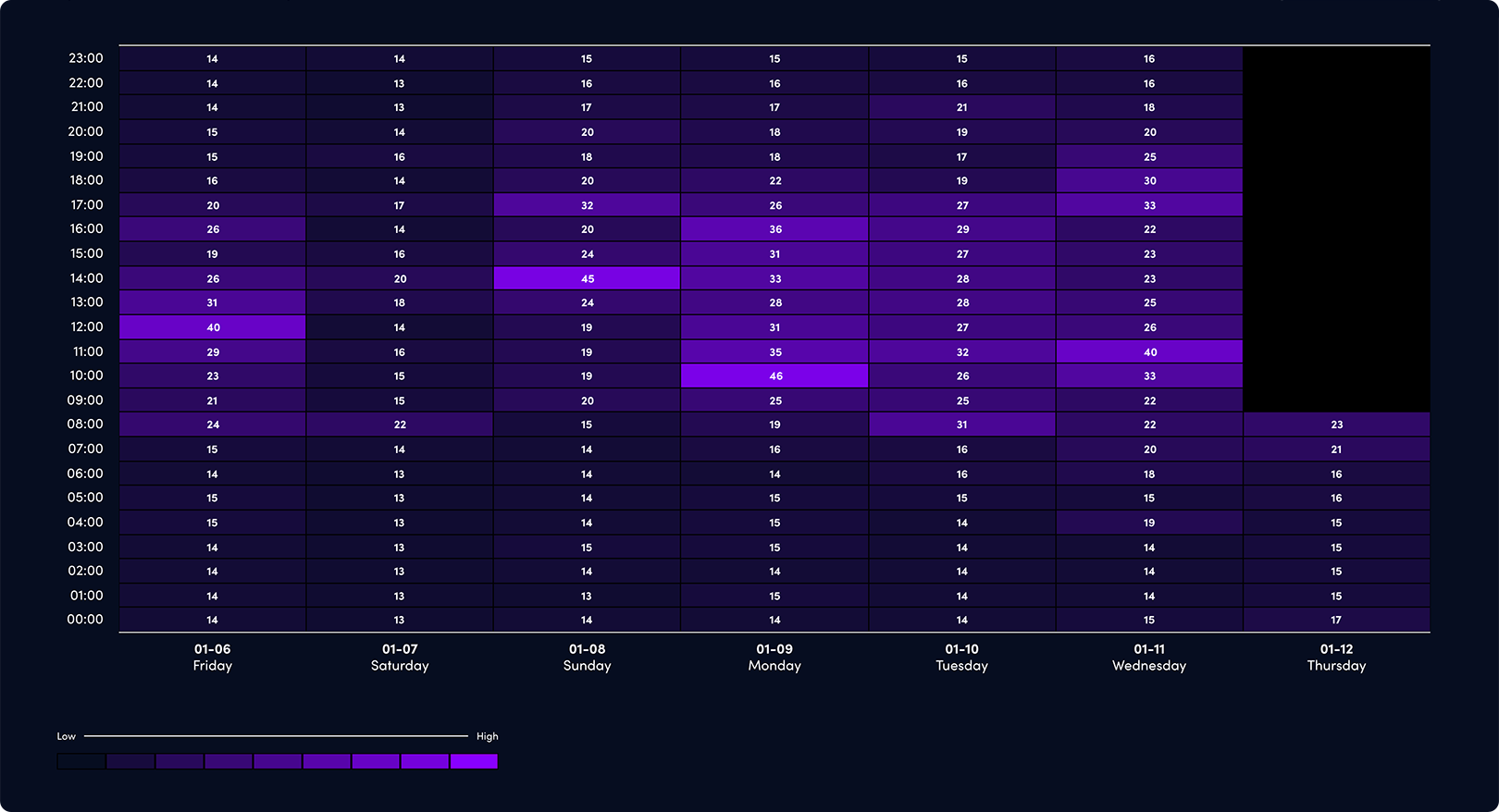Abstracting blockchain gas fees
Preloading a corporate wallet to pay gas fees is a pain. For those familiar, gas fees are network fees paid to use a blockchain. They are different for every chain, and the costs vary by chain. For example:
Fees paid in the native currency of each blockchain must be prepaid before an action can be taken, and to make matters worse, the gas prices themselves fluctuate, so what you pay for vs. what you get is difficult to predict. That has yet to stop a fair amount of admirably trying to predict these, but it's not straightforward for an everyday CeFi entity. Here is an example rundown of the last few days in gas fees on Ethereum:
Average Gas Price Heat Map

Assuming you take the time to learn what GWEI is, how costs fluctuate with usage, and how to predict your use of AVAX, ETH, MATIC, and more, you'll still need to figure more out.
Fee wallets have to be monitored to ensure there are more than enough funds to avoid issues before transfers or deployment, and getting this wrong can stop transactions from occurring. Our observation is that what seems like a minor annoyance can become a significant problem because of all the questions it introduces:
- Who holds the signing wallet to approve transactions?
- Is the signing wallet funded, or will you hold funds in a different wallet and transfer on demand?
- Who accounts for holding the cryptocurrency on their balance sheet, and can that entity even legally hold the native currency of that blockchain?
- Are the fees being charged fair?
- How are failed transactions accounted for from an accounting perspective?
- Who's responsible for accounting on the fee account?
Discussions about gas fees can go in many directions and take you down a few rabbit holes. For many potential users, the discussion is a barrier to entry. Gas fees aren't as challenging for consumers or those using web3 wallets in browsers or on device. For traditional CeFi entities, working with DeFi protocols and gas fees is a challenge.
We think of our job as combining the best of DeFi / CeFi, and one thing CeFi has made simple is billing. We've decided to roll up all associated gas fees into a monthly charge billed at the end of the month.
Today, Brale manages all the fee funding accounts and pre-funding on behalf of clients across all chains we've implemented. To use a DeFi protocol with Brale, you don't need to manage questions 1-6 above, pre-purchase any native blockchain currency, or get an acronym MBA!
It just works.
Request a demo and see what we're building.
Discuss on
Contributors


 Kenny MiesnerSr Designer
Kenny MiesnerSr Designer